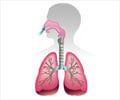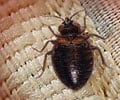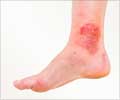Amphotericin B Medication Information
Learn everything you need to know about Amphotericin B-pronunciation, uses, dosage guidelines, indications, and when to take or avoid it.
Get up-to-date information on side effects, precautions, warnings, and proper storage to ensure safe usage.
Explore Amphotericin B brand names commonly used in India and internationally, along with detailed pricing information. Consult your healthcare provider for tailored medical advice.
Generic Name : Amphotericin B Pronunciation : am- foe- TER- i- sin b ICD Code : Y40.7 Therapeutic Classification : AntifungalsBrand Names or Trade Names of Amphotericin B
India :
International :
Amphotec, Amphocil, Fungilin, Abelcet, AmBisome, Fungisome
Why is Amphotericin B Prescribed? (Indications)
This medication is an antibiotic, prescribed for life-threatening fungal infections. It is also effective in treating leishmaniasis. Newer preparations of this medication with lipid are now available which show lesser side effects than the older preparations.When should Amphotericin B not be taken? (Contraindications)
Hypersensitivity, lactation, do not give to patients receiving antineoplastics (cancer drugs).What is the dosage of Amphotericin B?
Following a test dose, treatment is started with an IV dose of 0.3 mg/kg/day injected slowly. Usual dose 0.7 mg/kg. Dose in fungal meningeal infections - 0.5 mg twice weekly administered intrathecally. Since the lipid amphotericin B formulation have lower side effects, they may be administered in higher doses.How should Amphotericin B be taken?
It comes as a fluid for IV injection, administered by infusion into the vein by a health care professional once a day. It may be administered orally for fungal infection of the intestines or as eardrops for fungal infection of the ears.What are the warnings and precautions for Amphotericin B?
•Do not use this medication for less severe infections such as oral thrush (white spots in the mouth), vaginal yeast infections, throat infections (esophageal), nor for localized (not spread throughout the body) fungal infections in people with a normal white blood count.Caution needed in patients receiving transfusions, or have ever had diabetes or kidney disease, pregnancy.
Breastfeeding is contraindicated in patients receiving treatment with liposomal Amphotericin B.
What are the side effects of Amphotericin B?
Heart- Inflammation of vein, high or low blood pressure, abnormal heart rate and rhythm, chest pain, cardiac arrest, dilatation of blood vessels, bleeding, heart valve disease, heart failure, heart attack and fast breathing.Central Nervous System- Headache, sleeplessness, anxiety, weakness, confusion, dizziness, abnormal thinking, agitation, coma, convulsions, depression, hallucinations, uneasiness, nervousness, tingling, drowsiness, tremor, increased tone of muscle, speech disorder, fainting, stroke, abnormal movements and peripheral nerve damage.
Skin- Rash, itching, sweating, hair loss, dry skin, herpes simplex, easy bruising, skin discoloration, skin ulcer, allergic reactions and flushing.
Eye and ENT- Inflammation of conjunctiva, dry eyes, bleeding in eyes, visual impairment inflammation of pharynx, visual disturbance and deafness or ringing in the ear.
Gastrointestinal - Vomiting, nausea, loss of appetite, diarrhea, constipation, anorexia, GI bleeding, dry mouth/nose, difficulty in swallowing, increased thirst, eructation, fecal incontinence, flatulence, piles, intestinal obstruction, inflammation of gums and tongue, mouth ulcer, rectal disorder, bloody diarrhea, cramping and abdomen pain.
Genitourinary- Blood in urine, kidney failure, abnormal kidney function, painful urination, urinary incontinence or retention, vaginal bleeding, albumin or glucose in urine, decreased urine, inability to concentrate urine, impotence and accumulation of acids.
Blood- Anemia, decrease in white blood cells, platelets, fluid overload, in some people increased level of white blood cells, increase in eosinophils and coagulation defects.
Liver- Increased liver enzymes, liver damage, hepatitis, jaundice and gall bladder inflammation.
Hypersensitivity- Allergic reactions and sometimes severe enough to cause death.
Local- Pain and inflammation at injection site and inflammation of vein.
Metabolic-Nutritional- Increase in blood sugar, blood volume, weight changes and electrolyte abnormalities.
Musculoskeletal- Bone, joint and muscle pain and weakness.
Respiratory- Difficulty in breathing, increased cough, nose bleed, stuffy nose, sinusitis, hiccup, lung disorder, respiratory failure, asthma, pneumonia and fluid collection in the lungs.
Miscellaneous- Flu–like symptoms, high fever, shaking chills, immunological reactions, organ damage, infections, complications due to the procedure and swelling of the face, headache, and generalized weakness.
What are the other precautions for Amphotericin B?
Monitor kidney and liver function changes.What are the storage conditions for Amphotericin B?
Intrathecal: Store at 2-8°C. Protect from light and do not freeze it.IV: Store it in refrigerator and protect from light and do not freeze it.













